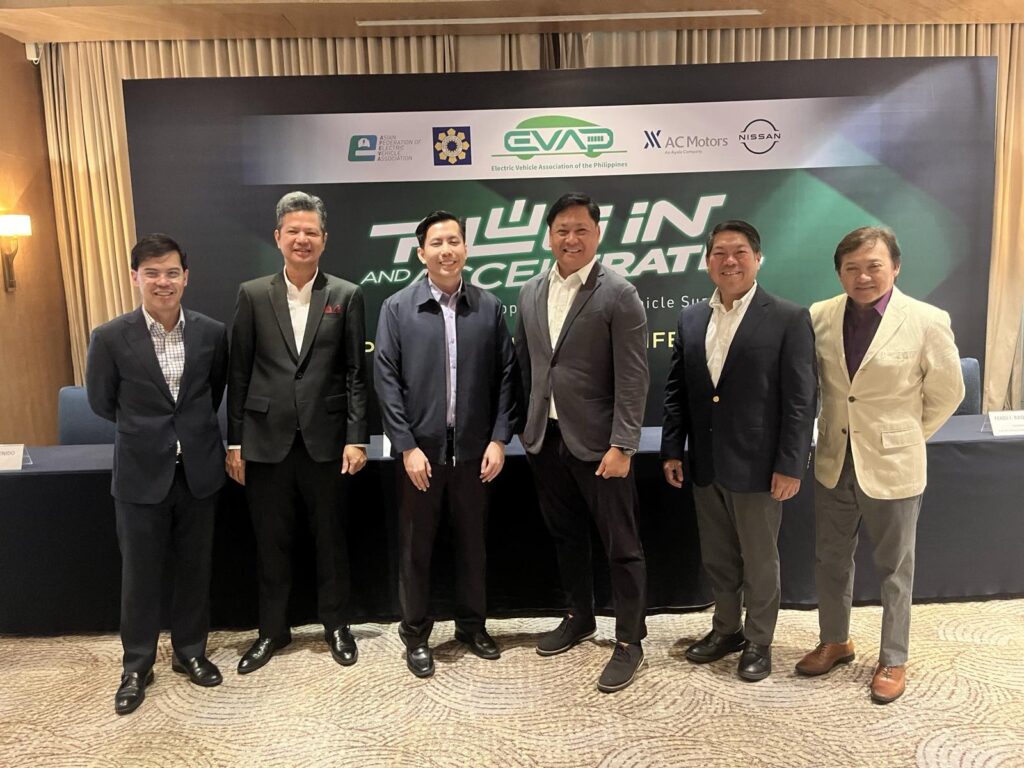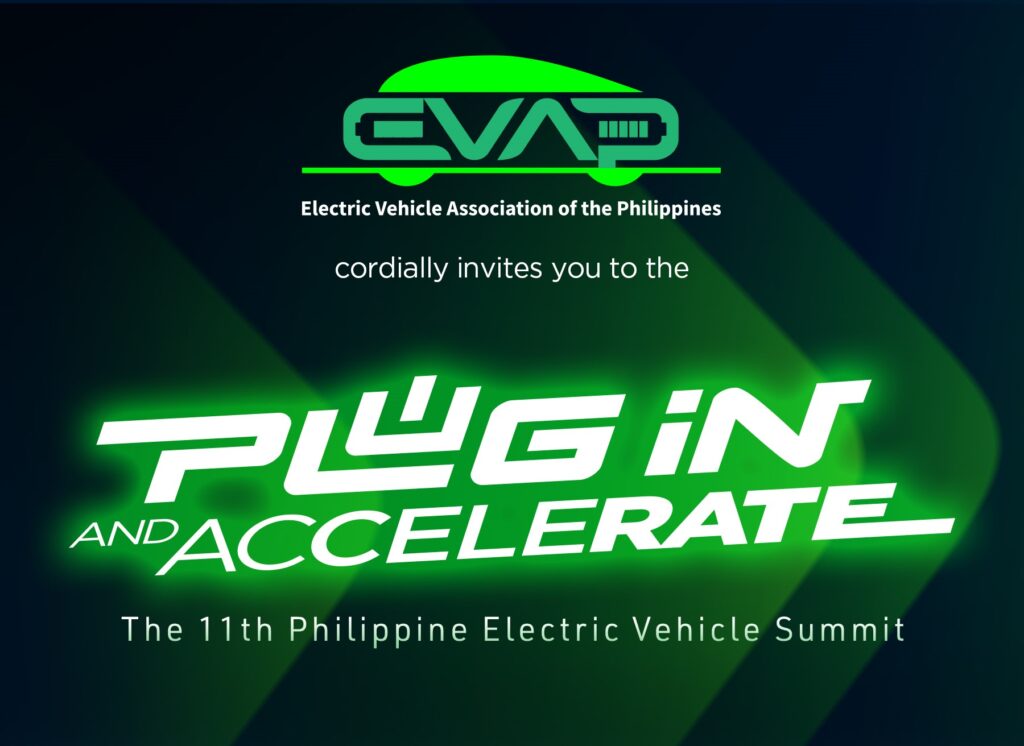
Standing from left to right: Mr. Daximilan Avenido – General Manager (Nissan Philippines), Mr. Antonio P.A. Zara III – Head for Distribution and Retails (AC Motors), Dir. Patrick Aquino (DOE) Mr. Edmund Araga – President (EVAP) Mr. Rommel Juan – Chairman (EVAP) and Mr. Ferdi Raquelsantos – Chairman Emeritus (EVAP) during the pre event press conference of the 11th Philippine Electric Vehicle Summit
As global sales of electric vehicles (EVs) comes to a tipping point for a logically wider adoption, more car buyers in the Philippines are also getting convinced to make the switch.
Based on data from Statista, 1,013 EVs were sold locally in 2022—higher than 843 in 2021 and 378 in 2020. This could mainly be attributed to the implementation of the Electric Vehicle Industry Development Act (EVIDA) or the Republic Act No. 11697, which lapsed to become a law in April 2022 and enacted in May 2022 (with implementing rules and regulations taking effect in September 2022).
EVIDA incentivizes EV adoption nationwide—through allocating dedicated parking slots in establishments, assigning green routes across cities and municipalities, and exempting the vehicles from traffic coding schemes, among other perks. Public and private sectors have also been working to make charging stations more conveniently accessible to EV owners.
“Implementation remains a big challenge as it involves extensive output and promotion,” said Electric Vehicle Association of the Philippines (EVAP) President Edmund Araga. “The EV industry is still making necessary adjustments in terms of supplies and infrastructures. Transitions are on the way in terms of regulations being set by different government agencies involved.”
Support from government and other sectors
Araga also pointed out that currently, the Department of Energy (DOE) is setting the pace in the government sector through rolling out necessary programs especially those aligned with the law pertaining to renewable energy sources. “Such initiatives are related to the development of local EV infrastructures. One I can cite is the e-App program that maps out locations of active EV charging stations across the country,” Araga explained.
He also cited DOE for the ongoing development of the Comprehensive Roadmap for the Electric Vehicle Industry (CREVI), which comes with inter-agency support. The department is also facilitating public consultations regarding the Vehicle Fuel Economy Labeling Program (VFELP) and the Fuel Economy Performance Rating (FEPR).
Meanwhile, the Department of Trade and Industry (DTI) is still preparing its Electric Vehicle Incentive Strategy (EVIS) and the Department of Transportation (DoTr) is keeping its focus on public utility vehicles (PUVs) modernization, with EV as the priority. Other government agencies are taking their share by including EVs into their fleets (the Department of Public Works and Highways or DPWH is leading the pack in terms of compliance to this commitment).
For its part, the private sector is actively investing into putting up more charging stations in strategic locations nationwide and using the latest innovative EV charging technology. Many private companies are also taking the initiative to procure EVs for enhancing their own fleets, highlighting their efforts to lower carbon emissions and lower energy dependency on gasoline.
11th PEVS
These and more are among the important highlights of the upcoming Philippine Vehicle Summit (PEVS) 2023. Now on its 11th edition, the pioneering event pushing for wider EV adoption in the country will be its biggest to date—a three-day summit featuring trade exhibitions and a conference to occupy three halls of the SMX Convention Center in Pasay City.

With the theme ‘Plug-In and Accelerate,’ the 11th PEVS will be held from October 19 to 21 (with a two-day conference on the 19th and 20th). It would be organized and hosted by EVAP with the Manila Electric Company (MERALCO) and in partnership with the DOE and Nissan Philippines, Inc.
“Not to be missed is the establishment of the Philippine Battery Consortium, which be launched during PEVS 2023. It is aimed at addressing the important concerns and issues about battery supplies and costs. Of course, the three-day event will be a bigger venue for networking as well as for plenary and moderated discussions, which everyone would surely find helpful,” Araga concluded.
To know more about EVAP and the 11th PEVS, visit www.evap.com.ph and www.evap.com.ph/summit.
 Power Wheels Magazine A Notch Above
Power Wheels Magazine A Notch Above
